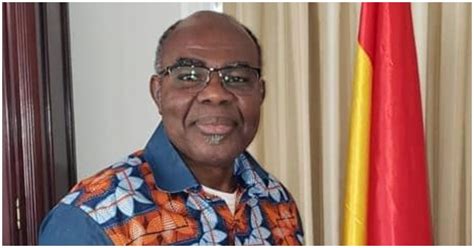adverts
Former Attorney General and diplomat Nii Ayikoi Otoo has called for sweeping changes to the constitutional framework that governs the appointment and removal of Ghana’s Chief Justice, describing the current system as prone to political influence and lacking in fairness.
His comments come in the wake of Chief Justice Gertrude Torkornoo’s official response to petitions seeking her removal.
The petitions, submitted to President John Mahama, prompted significant legal and public debate. Justice Torkornoo submitted her response ahead of the April 7 deadline, a requirement under Article 146 of the Constitution.
adverts
Speaking in an exclusive interview on Channel One Newsroom on Monday, Ayikoi Otoo expressed concern that the current procedure allows for the formation of a committee to investigate the Chief Justice even when the allegations made may not satisfy the constitutional grounds for removal.
“If we are doing this in all fairness, look at the threshold—stated misbehaviour, incompetence. All the complaints should be brought within these remits. If they don’t meet it, why do you go beyond that to set up a committee of enquiry to determine what?” he questioned.
He argued that once a committee is formed, the process often takes on a life of its own, suggesting the outcome may already be influenced by the initial decision to proceed with an investigation.
“Unless you have made up your mind already that you want to remove the person,” he cautioned.
“Because once you say there is a determination and you refer it to that five-member committee, whatever the people say will be the end.”
Ayikoi Otoo also took aim at the president’s power to appoint and remove the chief justice, calling it outdated and in need of urgent review. He advocated for a new system where appointments are handled by an independent body, with final approval from Parliament, to protect the judiciary from political interference.
“This is not fair. In the first place, giving the power to even the President to appoint is wrong,” he stated.
“That’s why the Constitutional Review Committee is looking at it—to get an independent body to do some of these appointments with the approval of Parliament. Then the removal will follow the same procedure.”
His call reflects a growing consensus among legal experts and civil society groups who have long argued that the current constitutional arrangement gives too much power to the executive—undermining the independence of the judiciary.
The Constitution of Ghana, under Article 146, outlines the process for removing justices of the superior courts. In the case of the Chief Justice, it requires the President, in consultation with the Council of State, to form a five-member investigative committee if a petition is deemed to have merit.
However, critics like Ayikoi Otoo say this structure places too much discretionary power in the hands of the president, with limited institutional checks on how that power is exercised.
As the case involving Chief Justice Torkornoo unfolds, it has reignited broader conversations about the need to protect the judiciary from political entanglements and ensure that constitutional processes are grounded in fairness and objectivity.
Ayikoi Otoo’s intervention adds weight to calls for constitutional reforms—reforms that may define the future of judicial independence in Ghana’s Fourth Republic.
Click the link Puretvonline.com | WhatsApp Channel to join the whatsapp channel
GOT A STORY?
Contact/WhatsApp: +233243201960 or Email: manuelnkansah33@gmail.com


